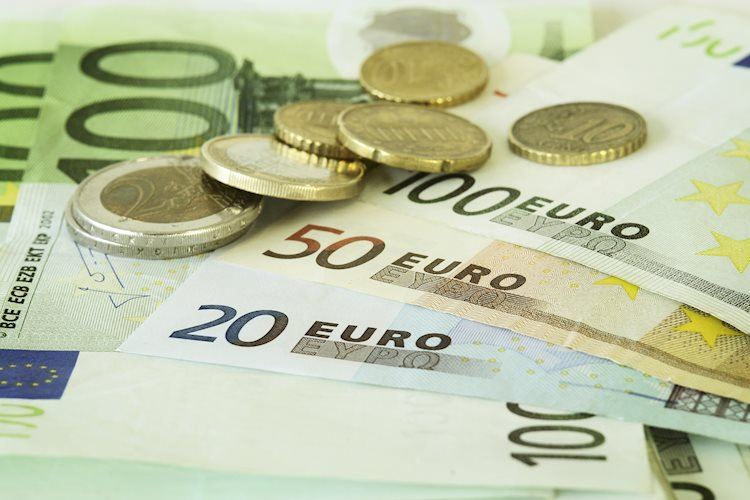TikTok CEO Shou Chew testified before Congress for the first time this spring. The company said in May that “we remain confident in the accuracy of Shou’s testimony.”
AFP via Getty Images
Democratic and Republican leaders of Senate Judiciary and Senate Commerce panels are pressing TikTok’s CEO to explain company testimony about American user data and China that runs counter to discoveries in recent reporting by Forbes.
Bipartisan Senate leaders are demanding answers from TikTok CEO Shou Zi Chew on the company’s “incorrect claims” about where it has stored the data of American users.
Richard Blumenthal, the Democratic Chair of Senate Judiciary’s privacy and technology subcommittee, and Marsha Blackburn, the top Republican on Senate Commerce’s data security subcommittee, wrote to the CEO on Tuesday raising alarm that “TikTok allowed private data about American users to be stored and accessed in China, despite repeated public assurances and Congressional testimony that TikTok data was kept in the United States.” They cite seemingly contradictory statements made under oath by the TikTok CEO himself in March 2023, as well as by TikTok’s head of public policy, Michael Beckerman, in October 2021.
The senators’ lettershared exclusively with Forbeswas sent in light of recent Forbes reporting revealing that TikTok has stored the most sensitive financial information of its biggest American and European stars—including those in the TikTok Creator Fund—on servers in China, where it’s been accessible to employees. TikTok stores tax forms, social security numbers and other personal data to pay creators who earn money for their content and outside vendors that work with the company. Those payments are managed through various internal tools from TikTok’s China-based parent ByteDance.
The lawmakers’ letter raises additional concerns about how TikTok’s Chinese parent company is deeply enmeshed in ByteDance’s operations outside China. It cites one Forbes report about how ByteDance is watching people who post about “sensitive” political, social and cultural topics across its various social media apps; another Forbes report about how ByteDance had used TikTok to monitor journalists reporting on the company; and a New York Times report that found that sensitive data from American TikTok users has been shared regularly with employees around the world, including in China, through ByteDance’s internal workplace software, Lark.
“These reports directly contradict statements you and other TikTok representatives have made to the public and under oath before Congress about where TikTok stores U.S. user data and the ability of employees in China to access that information,” the senators wrote Tuesday to TikTok’s CEO. Disclosures “that TikTok stores user data in China” have also been omitted from the company’s private communications with the Senate Commerce Committee, they wrote, citing a letter that the TikTok CEO sent to Senator Blackburn last summer. “We are deeply troubled by TikTok’s recurring pattern of providing misleading, inaccurate, or false information to Congress and its users in the United States, including in response to us during oversight hearings and letters.”
They are not the only Senate leaders who’ve raised these issues. Senate Intelligence Committee Vice Chairman Marco Rubio last week asked Attorney General Merrick Garland to open a Justice Department investigation into whether TikTok’s Chew committed perjury when he testified before the House in March about the company’s handling of American users’ data.
Got a tip about TikTok or ByteDance? Reach out securely to the author, Alexandra S. Levine, on Signal/WhatsApp at (310) 526–1242, or email her at alevine@forbes.com.
TikTok and ByteDance have not responded to requests for comment about a possible DOJ probe and the Forbes investigation into American citizens’ sensitive financial information that has been stored in China. In response to the letter from Blumenthal and Blackburn, TikTok spokesperson Alex Haurek said in an email: “We are reviewing the letter. We remain confident in the accuracy of our testimony and responses to Congress.”
TikTok is also moving ahead with a $1.5 billion undertaking known as Project Texaswhich is focused on cordoning off American user data from China. Lawmakers have expressed doubts that such a firewall is technically possible.
“Why did you and Mr. Beckerman previously testify that TikTok does not store user data in China when Forbes and New York Times reports have clearly found otherwise?” Blumenthal and Blackburn wrote in the letter to Chew. The Senate leaders asked for responses by next Friday to questions about possible corrections to Chew and Beckerman’s past testimony before Congress; storage of and access to American users’ information or personal data in China; why data related to the TikTok Creator Fund had been stored on servers there (and whether it still is); and whether TikTok has “taken any steps to investigate whether data related to the TikTok Creator Fund or any other U.S. user data stored in China or accessible to ByteDance employees was shared with officials of the Chinese Communist Party or the Chinese government.” TikTok has previously stated that it has never shared data with the Chinese government, and that it would not do so if asked.
Finally, the senators asked whether the Committee on Foreign Investment in the U.S.—which has spent years negotiating with TikTok on a national security deal that would allow the app to continue operating here—had been alerted to the fact that TikTok has stored U.S. user data on servers in China.
“There’s ongoing litigation over TikTok that is not yet resolved,” Treasury Secretary Janet Yellen, whose department leads CFIUS, said at a hearing in March.
This story has been updated to include comment from TikTok.
MORE FROM FORBES
MORE FROM FORBESTikTok Creators’ Financial Info, Social Security Numbers Have Been Stored In ChinaBy Alexandra S. LevineMORE FROM FORBESExclusive: TikTok CEO Should Be Investigated By DOJ, Senator SaysBy Alexandra S. LevineMORE FROM FORBESTikTok Parent ByteDance’s ‘Sensitive Words’ Tool Monitors Discussion Of China, Trump, UyghursBy Alexandra S. LevineMORE FROM FORBESEXCLUSIVE: TikTok Spied On Forbes JournalistsBy Emily Baker-White
MORE FROM FORBESTikTok’s China ProblemBy Emily Baker-WhiteMORE FROM FORBESHow A TikTok Ban Would Deal A Blow To Creators, Businesses And The American EconomyBy Alexandra S. Levine
Note: This article have been indexed to our site. We do not claim legitimacy, ownership or copyright of any of the content above. To see the article at original source Click Here













